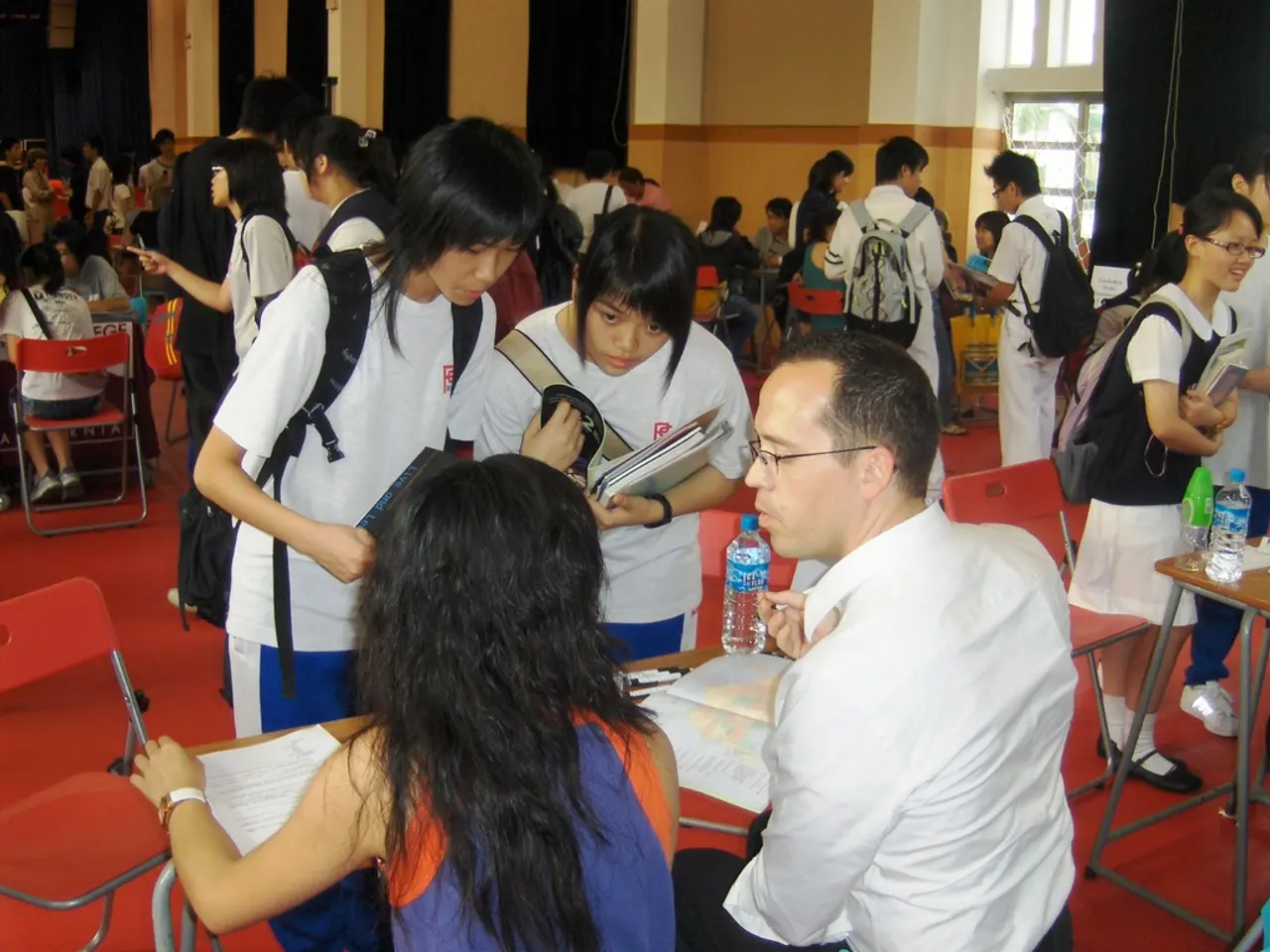Transforming Educators: Enhancing India's Educational Assessment Capacities, from Examinees to Exam Creators
In the realm of education, India is taking a significant step forward with the introduction of a dedicated two-year master's programme in educational assessments. This innovative initiative, spearheaded by the National Institute of Advanced Studies (NIAS) in Bengaluru, aims to modernise India's assessment system, which has largely relied on testing models developed over half a century ago.
The programme, designed to equip students with the necessary skills to navigate the complex world of educational assessments, will cover a wide range of topics. The first year will delve into educational theories and core measurement principles, while the second year will offer advanced courses in measurement, research, and psychometrics.
Students will specialise in 2-3 assessment areas, including classroom, formative, summative, large-scale accountability assessments, competitive entrance tests, and school-leaving examinations. The programme will also emphasise communication skills to ensure graduates can effectively convey technical assessment concepts to diverse stakeholders.
Collaboration with computer science, statistics, psychology, and public policy departments is essential for modern assessments, and the programme will encourage interdisciplinary learning. Furthermore, universities will leverage their own internal examination and data systems as training grounds.
This move is crucial, given the recent controversies surrounding India's National Eligibility cum Entrance Test (NEET-UG). In 2024, allegations of paper leaks and scoring inconsistencies shook public trust, with protests erupting nationwide and petitions demanding cancellation or a re-exam. One student, Adi, who spent years preparing to become a doctor, saw her rank drop from around 6,000 to below 24,000 due to alleged unfair practices.
The government responded swiftly, forming a high-level committee to recommend reforms and enacting the Public Examinations (Prevention of Unfair Means) Act 2024 to curb malpractice in competitive exams. Establishing these programmes beyond metropolitan cities would create a more diverse pool of assessment professionals and lead to better representation and culturally relevant assessments.
Investing in formal training is key to ensuring a credible and fair system where students like Adi are evaluated on their merit. Over time, these programmes could lead to the development of higher-level research degrees in educational assessment, psychometrics, and policy.
The writer of this article, a global expert in educational assessments, believes that practical experience will be a key component of these programmes, with students working directly with examination boards and research and implementation organisations. Flexible admission pathways will also attract candidates from varied academic and professional backgrounds, fostering a diverse and dynamic learning environment.
As India embarks on this journey towards a more robust and fair assessment system, it serves as an inspiration for other nations to invest in the training of assessment professionals and the development of modern, credible, and culturally relevant assessment practices.
Read also:
- Impact of Alcohol on the Human Body: Nine Aspects of Health Alteration Due to Alcohol Consumption
- Understanding the Concept of Obesity
- Lu Shiow-yen's Challenging Position as Chair of the Chinese Nationalist Party (KMT) Under Scrutiny in Donovan's Analysis
- Tough choices on August 13, 2025 for those born under Aquarius? Consider the advantages and disadvantages to gain guidance







